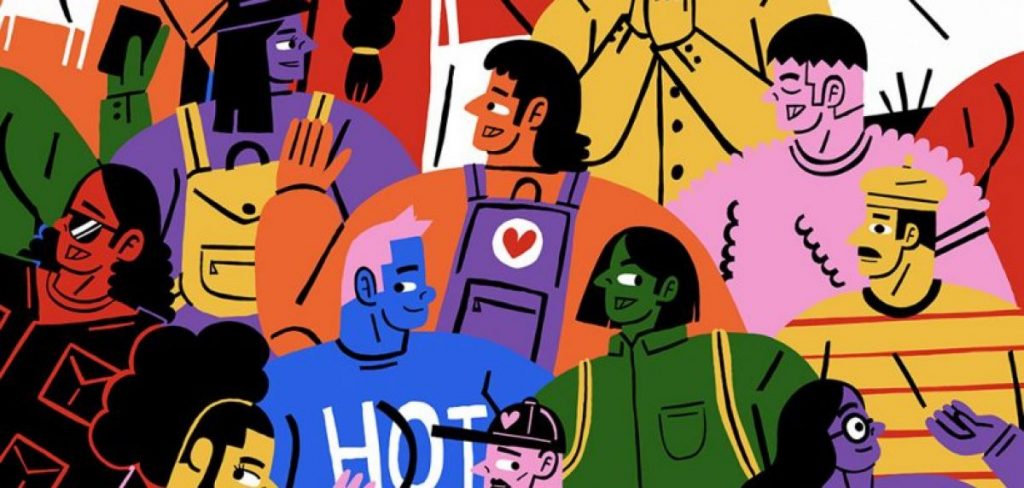Intro:
At Camberwell, on BA Illustration I teach 3rd year students during unit 9 & 10.
- Unit 9: Establish a critically informed practice
- Unit 10: Create a final project.
In this time, I deliver 3-4 workshops and facilitate 1 on 1 and group tutorials.
Evaluation/Goal:
In the 3rd year the course expects students to have self-led practice, informed by year 1 & 2. However, some students still struggle to keep up with the curriculum. I have observed the following challenges:
- Disinterest in critical thinking
- Lack of skills to pursue a professional career in illustration
- Struggling to maintain a self-led project due to lack of confidence
Using the action plan found below, I will define a method of teaching that despite very little contact time will help students tackle these challenges and remind them to have fun during their final year.
Plan of action and context:
Relatable topics to support critical thinking:
To ensure that my lessons are accessible to students with a wide range of skills and points of reference, presenting information with a clear pace is helpful.
In the book “What is The Use” by Sara Ahmed, she presents a format of writing that introduces the reader to a known topic that is then used to educate about something more complex and critical. I will keep this method of education in mind when designing my tasks for upcoming lessons (Ahmed, S 2019).
Another example of this in relation to the topics I teach is:
Using a well-known video game character like Super Mario to talk about class. Referencing a critical reading presented by YouTube duo Transparency Boo. (Transparency Boo. 2021)
(Play labour, A video Essay by Transparency Boo, 2021)
Building confidence through improvisation:

Excerpt from Lynda Barrys book “Syllabus” (Barry, 2020)
To help students get past insecurities and confidence blocks during workshops i will be applying methods of improvisation often used during acting and comedy training. This method will also be informed by Lynda Barry’s methods presented in her book “Syllabus”. The two focuses will be to:
- Design workshop exercises that operate within a YES, AND mindset. (J. Abbot. 2008)
- Creating warm up tasks that avoid students “thinking too much” by providing strict limitations through timings, tools and materials. (Barry, 2020)

Visual aids to support student engagement:
Referencing the typography working sheets presented by Umi Baden-Powell during the microteach and the feedback I received during my teaching review, I will create relevant visual aids for my workshops in the upcoming academic year. Main points of inspiration are found in “Making Comics” by Lynda Barry, “The Improvisation book” by John Abbot.

(Worksheets by Umi Baden-Powell. London 2025)
Ideas for visual aids for my workshops:
- Transfer the written instruction for my Video Game Zine workshop into a paper zine that can be used as a notebook during the workshop.
- Create a DIY workbook with premade panels for my comic workshops.
Example of scenario cards from The Improvisation Book. (J. Abbot. 2008)
Bibliography:
Ahmed, S 2019, What’s the Use? : On the Uses of Use, Duke University Press, Durham. Available from: ProQuest Ebook Central. [19 February 2025].
Barry, L., 2020. Syllabus: notes from an accidental professor, Published in the USA by Drawn & Quarterly.
Barry, L. (2019) Making Comics. 1st edn. Quebec: Drawn & Quarterly.
Abbott, John. The Improvisation Book, Nick Hern Books, Limited, 2008. ProQuest Ebook Central, http://ebookcentral.proquest.com/lib/ual/detail.action?docID=1826499.
Created from ual on 2025-02-26 09:41:37.
Transparency Boo (2021). Play Labour | Mario Is a Class Traitor and Other Stories. [online] YouTube. Available at: https://www.youtube.com/watch?v=WjJHn_Gt_FI [Accessed 7 Mar. 2025].
